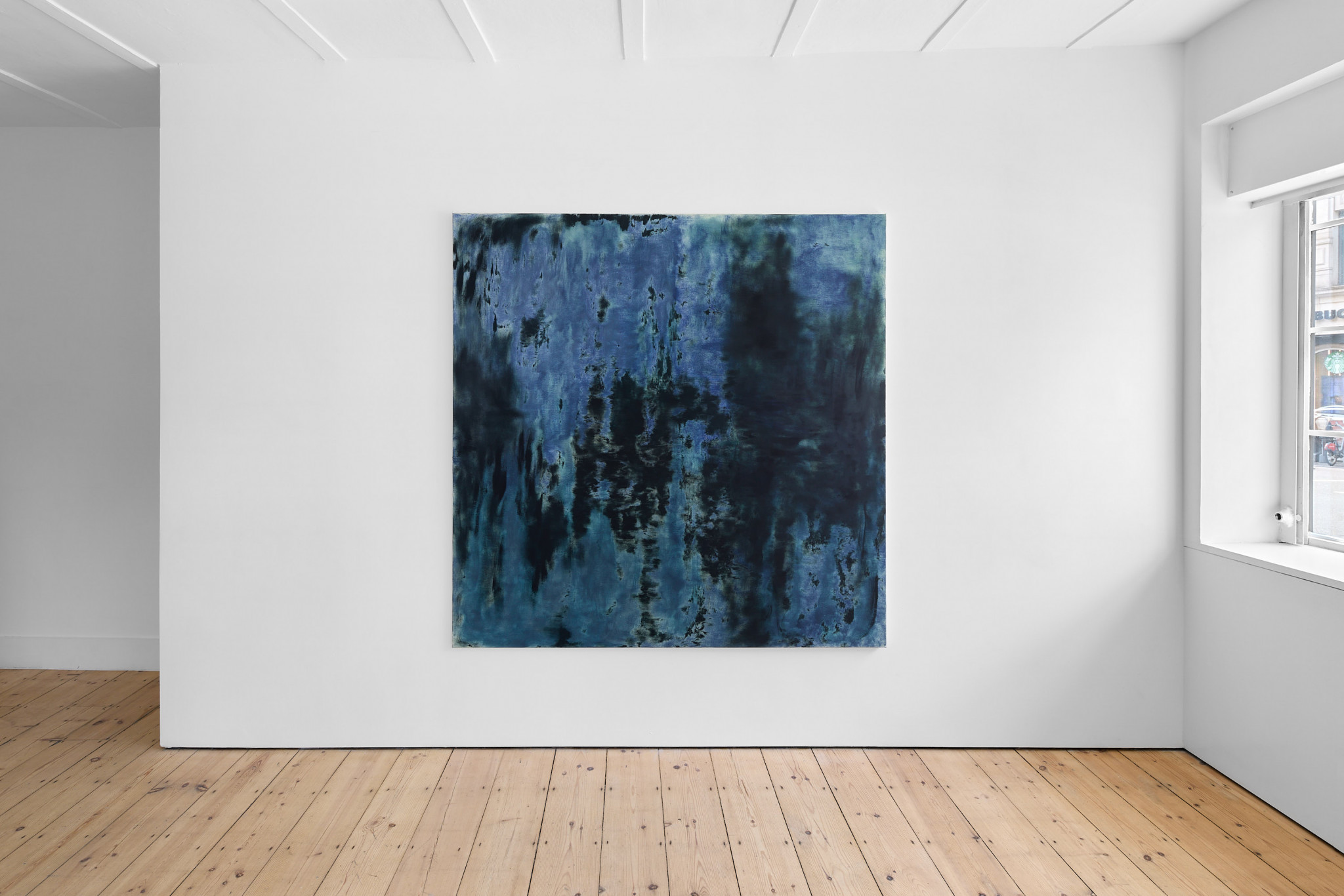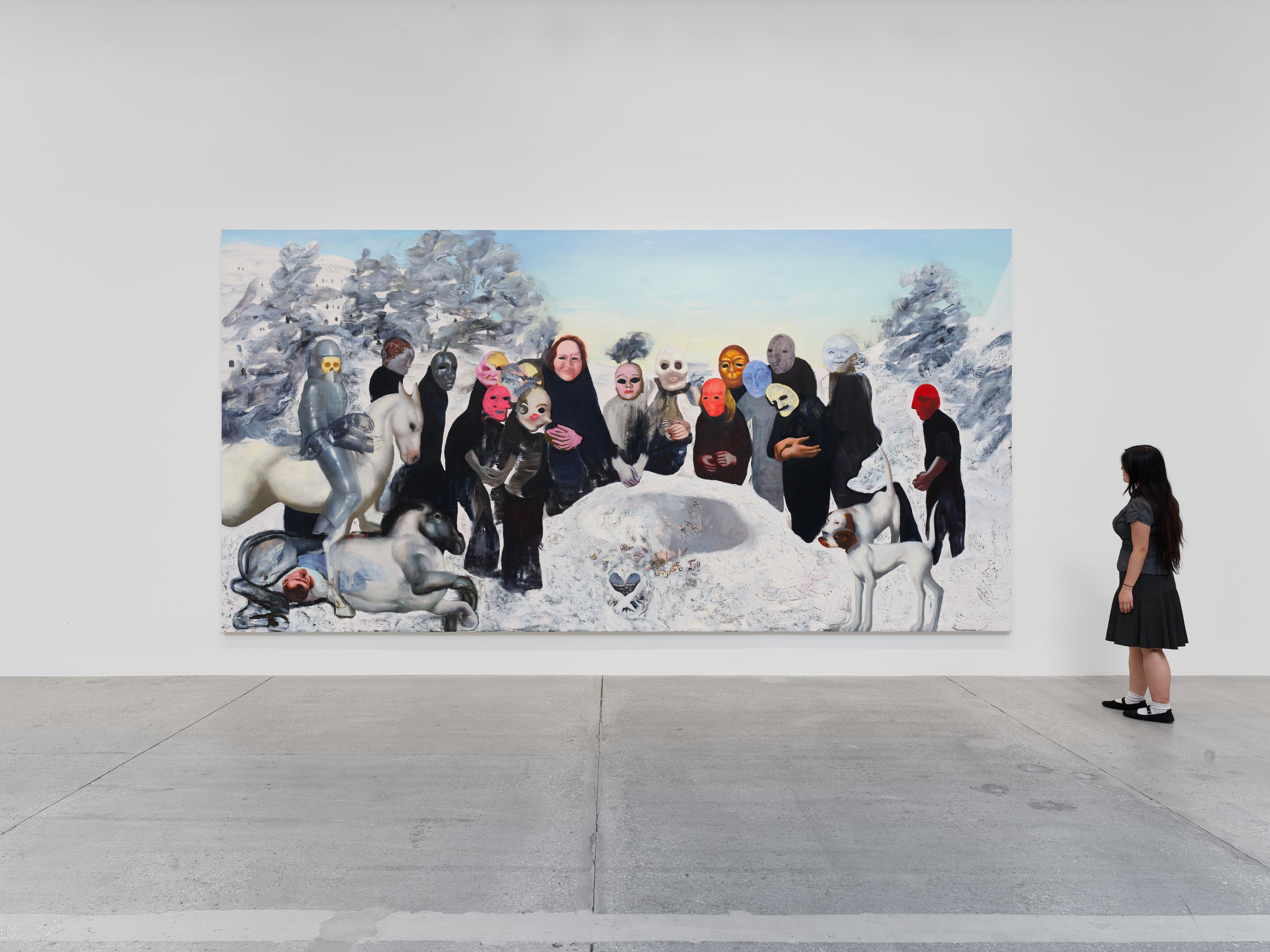'Word of Mouths': a performative event addressing the necessity to foster dialogue, agency and safety outside the confines of established institutions, providing a platform for artists working in the realm of performance art to share their voices, stories, and perspectives.

In the heart of Venice, amidst the bustling energy of the 60th Venice Biennale, Campo de le Gate emerges as a hidden gem–a tranquil Venetian square nestled near the Giardini and Arsenale. As sunlight bathes the cobblestones in a warm, golden glow, the air is imbued with a sense of ancient allure, evoking memories of bygone eras when the city’s squares were vibrant hubs of communal exchange and oratorical prowess. Venice, with its timeless charm and enigmatic allure, stands as a bastion of history, preserving its magical essence apart from the temporary flux of other cities and amidst the ebb and flow of modernity. Here, within this enchanting enclave, the square transcends its physical dimensions to become a microcosm of urban life–a nexus of trade, liturgy, drama, and collective revelry. It is a place where the city speaks for itself, where reality and illusion intertwine seamlessly, captivating both residents and visitors alike. In this narrative of urban existence, the square emerges as the generative heart, where collective values and disvalues converge, shaping the very fabric of community and communication, whilst enduring the spirit of Venice and its capacity to inspire wonder and transformation.
This environment, so ordinary yet surreal, becomes the backdrop for Word of Mouths, a performative event brought to life thanks to a strong collaborative power, committed to building a space for genuine dialogue and meaningful interaction between artists and audiences. Featuring four performances from four different artists (Nicholas Grafia, Olga Hohmann, Julius Pristauz, and Agnieszka Szczotka), the event is curated by Alice Amati–Italian gallerist based in London and founder of Alice Amati Gallery–and hosted by Mare Karina, a space born from the creative minds of Marta Barina and the artist Jure Kastelic, who are working collaboratively to generate a space that, as they describe, is a ‘hybrid of a gallery, artist studio, and incubator, focusing on exhibitions and cross-industry collaborations.’ As the city pulses with life, the convergence of art, community, and innovation unfolds in this dynamic space–a testament to the enduring magic of Venice and its capacity to inspire transformative experiences.
The title Word of Mouths carries its own layers of meaning. Referring to the passing of information and news between people from oral communication, the concept of ‘word of mouth’ acquires a deeper significance in the context of the eponymous performance event. It enables the exchange of narratives, stories, and perspectives occurring during the performances and engages audiences in a dialogue that transcends traditional boundaries of communication. Highlighting the importance of personal connections and shared experiences in fostering understanding and community, the event therefore suggests an intimate and participatory approach to communication, where each audience member plays a role in shaping the narrative and contributing to the collective exchange of ideas. This way, the theme unfolds as a unique exploration of language, power dynamics, and collective experience, which also links directly to the narrative behind the 60th Venice Biennale: ‘Foreigns Everywhere.’
Drawing inspiration from the rich history of public speaking, each artist included in the event embodied a contemporary orator while navigating the intricate competency between the speaker and the audience. From linguistic free association to soliloquies of lived experiences, the performances challenged audiences in different ways to question their readiness to truly listen and engage with a perhaps diverse perspective, while questioning the controversial and often exclusionary social hierarchies and dynamics that we all somehow experience within our movements or social interactions.

The first artist performing is Agnieszka Szczotka (b. 1982 in Lubaczów, Poland), presenting Review, a manifesto challenging the neoliberal pressure on productivity and the body, while trying to disrupt social structures. Initially performed by the artist as part of her degree show at the Royal Academy Schools, the piece unfolds as a list of what Agnieszka describes to be ‘personal failed ideas or unreleased projects mixed with unrealized projects of other artists, dreams, slogans, historical references or stories.’ Dressed in a bright, almost fluorescent pink suit–impossible not to be seen–Agnieszka’s figure moved around the space and engaged the audience through each line of the monologue. Her voice resonated within the public, reverberating each spoken sentence in the mind of every listener. Every line is directed to one person from the audience at a time. Eye contact is maintained.
Remember when I decided that my desperation was my inspiration
[...]
Remember when I covered my body in feathers and jumped into the Thames and floated and filmed it and screened it at Piccadilly Circus
Remember when I unlocked my true cosmic potential
Remember when I wrote a memoir and titled it My Cunt
Remember when I got obsessed with having children and I interviewed all my friends who are mothers and made it into a feature film just to get it out of my system
[...]
Remember when I tripped and died
Remember when I was a subject of my own desire
Remember when I was a brutalist among neo classicists
Remember when I was a gardener of my own Versailles
Remember when I worked as a clown and was so embarrassed I never told
anyone
The word ‘Remember,’ constantly repeated throughout the spoken text, evokes a nostalgic feeling, connecting with memory and challenging what is true and what is not; what has been remembered and what has not been.

The second performer is Nicholas Grafia (b. 1990 in Angeles City, Philippines), with the piece Meditationisms II: Vertigo Vulture Checking In, which delves into themes of social mobility and travel experiences through a captivating soliloquy that links queer theatre, words and music. The performance, second chapter of a previous version (Meditationisms (1): created to disrupt the conception of clubs and bars as safe spaces), references castaway narratives, colonial travel, and sea warfare, embodying a character addressing its own social mobility and agency. Grafia therefore challenges conventional notions of journeying in the post-colonial world. Concepts like “packing lightly,” “easy traveling,” and “economy class,” as well as traditional ideas of souvenir, tourist attractions or popular destinations are explored and questioned.
And in that style we all of a sudden meant the WOOORLD to people like us not only to those near the coast of Cuba.
Actions speak louder than words and we partied hard, using swords and fists to make way on the dance floor to justice.
We could only afford economy class but we sure meant BUSINESSSSSSS.
[...]
This is a cruise.
“Is this Noelle’s ark?”, asked no one ever, but that’s what crossed their mind.
They packed lightly and clearly made a mistake.
“Silly me...thinking that I could just buy what we needed along the way.”
Why are they talking to themselves?
Sea sick? Why didn’t they take the plane to get where they needed to? Wrong period? They must be in for the long ride.
Port after port after port after port.
Dressed in a traditional costume from the Opera house in Zurich and adorned with a rope net typical of the maritime scenarios, Nicholas Grafia moved within the square stage as a proper orator in front of the listening public. His tone of voice spacing from firm speaking to singing or ironical comedy.

Hairy Mary, a musical performance by Olga Hohmann (b. 1992, Berlin, Germay), explores themes of body, identity and perception, inspired by the mythical tale of Mary Magdalene. The overall performance connects gracefully with the public through Olga’s soft presence and amateurish voice techniques. She is adorned with a huge tie that makes her presence even more theatrical, like if by wearing an accessory so larger than its actual size, the artist elevates from its surroundings.
I remember my favourite game as a child: I am a statue that slowly comes to life. The walk from my best friend’s house to our home (there was no street corner in between) sometimes took many hours because I, about one meter high, kept petrifying in between.
I remember how my father lost his patience and picked me up from the ground while I was petrified and carried me home. I tried to imagine that I was actually made of stone, to be as heavy as possible.
[...]
Let me end this with a poem.
There is something off with the time lately.
It’s as if There was a fat cat Lying on the hours covering some so that I have less.
In Hairy Mary, Hohmann invites audiences to contemplate the complexities of identity and perception through a musical piece that combines fictional narratives and found footage. As she describes it, her linguistic style is like a ‘voice traffic, a multi-layered writing that is always in motion.’ Across the constant repetition and variation, we perceive a rhythmic murmur while the distinction between inside and outside is getting more and more blurred.

The final performance is no time for applause by Julius Pristauz (b. 1998, Judenburg, Austria). By exploring the significance of clapping and applauding, the artist questions dynamics and pressures of public attention, so dissects attention as a hierarchical tool. The piece touches on political themes such as capitalism, authority, body perception and queerness, as well as expectations on productivity and representation.
[clapping]
Born and raised by those who praise control of population Well, everybody's been there and I don't mean on vacation [...]
WE ALL FORM THE BODY THAT THE ONES IN POWER GOVERN control yourself
take only what you need from it
ME AS WELL AS YOU
WE ARE PARTS OF THE BODY THAT OUR POLITICIANS GOVERN and the body runs
The body is tired
The body runs
The body is tired
By jumping between humour and critique, Pristauz navigates the complexities of modern communication within the context of contemporary society, highlighting the pressure that we often experience in our life, characterised by constant and inevitable ups–when our body runs–and downs–when our body is tired.
As the performances unfolded in the historic setting of Mare Karina in Campo de le Gate, Word of Mouths transcended mere spectacle, becoming a profound exploration of voice and language, across a political lens. Each artist challenged audience members to question their perceptions and engage in meaningful dialogues. Within the environment of Venice’s timeless charm and enduring spirit, Word of Mouths’ thought-provoking performances challenged audiences to listen, engage, and reflect on the diverse voices that shape our world: a testament to the transformative power of art in creating spaces for dialogue, understanding, and collective action.







